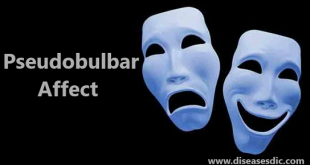What is Paranoia?
Paranoia involves intense anxious or fearful feelings and thoughts often related to persecution, threat, or conspiracy. Paranoia occurs in many mental disorders but is most often present in psychotic disorders. Paranoia can become delusions when irrational thoughts and beliefs become so fixed that nothing (including contrary evidence) can convince a person that what they think or feel is not true. When a person has paranoia or delusions, but no other symptoms (like hearing or seeing things that aren’t there), they might have what is called a delusional disorder. Because only thoughts are impacted, a person with delusional disorder can usually work and function in everyday life, however, their lives may be limited and isolated.
Three main types of Paranoia
Paranoia is associated with three principal conditions:
Paranoid personality disorder – considered the mildest type. Most people with paranoid personality disorder function well despite their mistrust of the world. The attitudes and behaviors associated with this disorder, when they become obvious, are often discovered to have been present for much of the person’s life.
Delusional (paranoid) disorder – characterized by the dominance of one delusion (false belief) without any other sign of mental illness. The person’s behavior depends on which delusion they have. For example, a person who has a delusion of persecution believes that other people are spying on them or plotting to harm them in some way. Stalking can be the result of delusional (paranoid) disorder – for example, the person believes they are in a relationship with a movie star they have never met. In another case, a person may imagine they have a terrible illness, despite repeated reassurance from doctors.
Paranoid schizophrenia – considered the most severe type. It is characterized by strange delusions, such as believing that one’s thoughts are being broadcast over the radio. Hallucinations, especially bizarre ones, are also common to the condition. A person with paranoid schizophrenia often finds the world confusing and functions poorly without treatment.
Causes of paranoia
Paranoia is not always due to mental illness. Recent studies have shown that mild paranoid thoughts are fairly common in the general population.
People become paranoid when their ability to reason and assign meaning to things breaks down. We don’t know why this happens. It’s thought paranoia it could be caused by genes, chemicals in the brain or by a stressful or traumatic life event. It’s likely a combination of factors is responsible.
Mental disorders that cause paranoia include:
Paranoid personality disorder
A personality disorder is a long-standing pattern of problematic thoughts, feelings, and behavior. People with paranoid personality disorder have a tendency to assume that others will harm, deceive or take advantage of them. They may appear secretive, argumentative or cold and be difficult to get along with. This disorder is uncommon and usually improves with age so that many people recover by their 40s or 50s.
Delusional disorder
People with a delusional disorder have one delusion (a fixed, false belief) without any other symptoms of mental illness. Paranoid delusions are the most common, making people feel there is a conspiracy or they are going to be harmed. But people with a delusional disorder can also have other types of unusual beliefs.
Paranoid schizophrenia
Schizophrenia is a form of psychosis and causes people to have trouble interpreting reality. The main symptoms are hallucinations (such as hearing voices that aren’t there) and delusions (fixed, false beliefs). Some people with schizophrenia have bizarre delusions such as believing that their thoughts are being broadcast over the radio or they are being persecuted by the government. Other symptoms include confused thinking and reduced motivation for everyday tasks.
Mood disorders
Psychotic disorder and bipolar disorder can cause paranoia.
Other causes of paranoia include:
- Recreational drug use: Cannabis and amphetamine abuse often causes paranoid thoughts and may trigger an episode of psychosis. Other drugs such as alcohol, cocaine, and ecstasy can also cause paranoia during intoxication or withdrawals.
- Neurological disease: Diseases such as dementia (including Alzheimer’s disease), Huntington’s disease, Parkinson’s disease or brain injury can cause paranoia.
- Severe trauma and stress: Some studies have found that paranoia is more common in people who have experienced severe and ongoing stress. This may include abuse in childhood, domestic violence, racial persecution or living in isolation.
Paranoia risk factors
Although no one knows the exact cause of paranoia, it seems that the following contribute to the condition.
- Risk factors of paranoia included Family history of personality disorders or other mental illness, Low level of education and lower social and economic status,
- Verbal, physical or sexual abuse during childhood, Neglect or an unstable/ disordered family life during childhood, being diagnosed with childhood conduct disorder and imbalance in brain chemistry and structure.
- This tends to affect males more than females, and it usually starts in the early teen years or young adulthood which may be due to massive changes going on within the brain.
Symptoms of Paranoia
Paranoid symptoms may range from mild to severe. They depend on the cause but, generally, a person who is paranoid may:
- Be easily offended
- Find it difficult to trust others
- Not cope with any type of criticism
- Assign harmful meanings to other people’s remarks
- Be always on the defensive
- Be hostile, aggressive and argumentative
- Not be able to compromise
- Find it difficult, if not impossible, to ‘forgive and forget’
- Assume that people are talking ill of them behind their back
- Be overly suspicious – for example, think that other people are lying or scheming to cheat them
- Not be able to confide in anyone
- Find relationships difficult
- Consider the world to be a place of the constant threat
- Feel persecuted by the world at large
- Believe in unfounded ‘conspiracy theories’
Complications of Paranoia
If paranoid is not treated, a person can end up with severe emotional and behavioral problems that can affect every part of his life. Such complications can include:
- Depression
- Alcohol and drug abuse
- Self-destructive behavior
- Relationship problems
- Financial problems/poverty
- Abuse of prescription drugs
- Homelessness
- Illegal acts
- Inability to work or attend school
- Suicidal thoughts and behavior
- Involvement in violent crime
- Heart and lung disease from smoking
Talk to your doctor about other complications from paranoid
How is Paranoia diagnosed?
If a person has symptoms, the doctor will begin an evaluation by performing a complete medical history and physical examination. Although there are no laboratory tests to specifically diagnose personality disorders, the doctor might use various diagnostic tests to rule out physical illness as the cause of the symptoms. For example, difficulty hearing or long-lasting substance abuse may be confused with PPD.
If the doctor finds no physical reason for the symptoms, he or she might refer the person to a psychiatrist or psychologist, health care professionals who are specially trained to diagnose and treat mental illnesses.
PPD is different from psychotic disorders such as schizophrenia, paranoid type or delusional disorder, persecutory type, in that the person with PPD lacks the perceptual distortions (for example, hearing voices) or bizarre delusional thinking (for example, being followed everywhere by the FBI).
Psychiatrists and psychologists use specially designed interview and assessment tools to evaluate a person for a personality disorder.
What treatment is available for Paranoia?
If your paranoid thoughts are causing you to distress then you may want to seek treatment. You may also be offered treatment for paranoia as part of your treatment for a mental health problem.
The first step is usually to visit your GP. Our information on seeking help for a mental health problem can help you speak to your doctor about your mental health.
Talking treatments
Talking treatments can help you understand your experiences and develop coping strategies to deal with them.
Cognitive behavioral therapy
The most common form of talking treatment for paranoia is cognitive behavioral therapy (CBT). During CBT, you will examine the way you think and the evidence for your beliefs and look for different possible interpretations. CBT can also help reduce worry and anxiety that may influence and increase feelings of paranoia.
Other talking treatments
Many other forms of talking treatments are available, including:
- Psychodynamic therapy
- Counseling
- Family (or systemic) therapy
Arts therapies
Arts therapies can help you express how you are feeling in different ways. They can be helpful if you are having difficulty talking about your experience.
Medication
If you have a diagnosis of paranoid schizophrenia or delusional disorder, you are likely to be offered an antipsychotic drug to reduce your symptoms. Antipsychotics may reduce paranoid thoughts or make you feel less threatened by them.
If you have anxiety or depression, your GP may offer you antidepressants or minor tranquilizers. These can help you feel less worried about the thoughts and may stop them from getting worse.
Can Paranoia be prevented?
Although prevention of Paranoia might not be possible, treatment can sometimes allow a person who is prone to this condition to learn more productive ways of dealing with situations.
 Diseases Treatments Dictionary This is complete solution to read all diseases treatments Which covers Prevention, Causes, Symptoms, Medical Terms, Drugs, Prescription, Natural Remedies with cures and Treatments. Most of the common diseases were listed in names, split with categories.
Diseases Treatments Dictionary This is complete solution to read all diseases treatments Which covers Prevention, Causes, Symptoms, Medical Terms, Drugs, Prescription, Natural Remedies with cures and Treatments. Most of the common diseases were listed in names, split with categories.








treatment for this can be enhanced by parental support
this page amazed me to think lots of family members are afygflicted with personality disorders
I learnt about RICH HERBS FOUNDATION (ww w. richherbsfoundation. c om) and their successful Parkinson Disease Formula treatment protocol a year ago. Since my Parkinson disease diagnosis over 4 years ago, I have tried several medications and supplements, nothing gave me good relief till I started on the RHF Parkinson Disease Formula protocol. Its been 7 months since I completed the treatment, all my symptoms including tremors, speech problems and other symptoms stopped
interesting app, I love it. good insight into things I’m interested in, mentle health/illness mainly and symptoms.